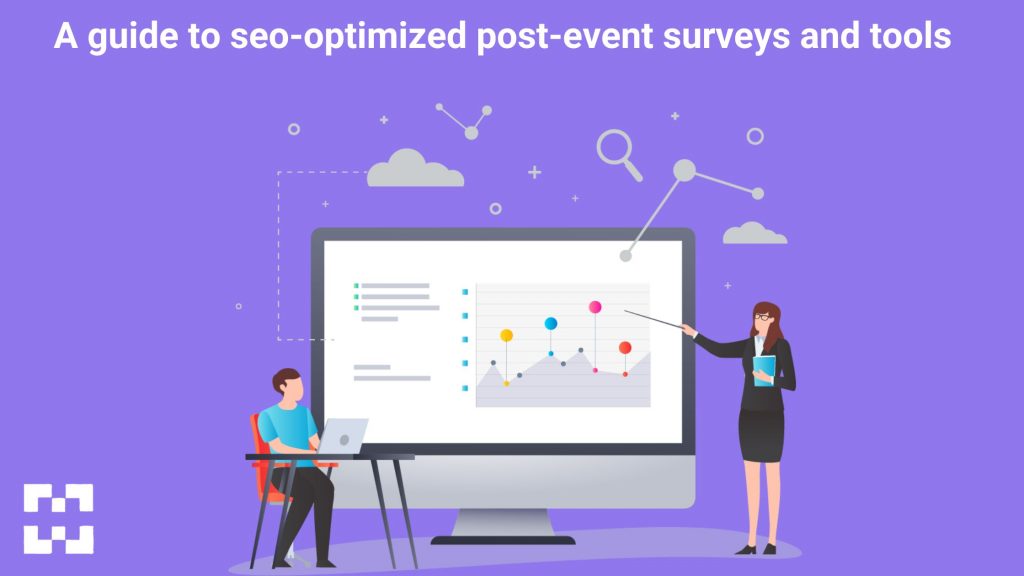
In the dynamic landscape of virtual events, success is measured not only by attendance numbers but also by the level of engagement and satisfaction among participants. Crafting a memorable and effective virtual event requires constant refinement, and one powerful tool for improvement is the post-event survey. In this blog, we’ll explore the importance of post-event survey questions and provide practical tips and tools to help you optimize your virtual events.
The Power of Post-Event Survey Questions:
Gathering Participant Feedback:
Post-event surveys serve as invaluable tools for collecting direct feedback from attendees. Participants can share their thoughts on various aspects of the event, including content, speakers, platform functionality, and overall experience. This feedback is a goldmine of information that can guide your future event planning efforts.
Measuring Participant Satisfaction:
Understanding the satisfaction level of your audience is crucial for gauging the success of your virtual event. Survey questions can be designed to measure overall satisfaction, as well as specific elements such as session content, networking opportunities, and technical aspects.
Identifying Areas for Improvement:
By asking targeted questions about what worked well and what could be improved, you can pinpoint areas that need attention. Whether it’s technical glitches, content gaps, or communication issues, participant feedback helps you identify and address these challenges head-on.
Enhancing Content Relevance:
Tailoring content to the interests and needs of your audience is essential for a successful virtual event. Use survey questions to gather insights into participants’ preferences and expectations, enabling you to curate content that resonates with your audience.
Practical Tips for Crafting Effective Post-Event Survey Questions:
Keep it Concise:
Participants are more likely to complete a survey if it’s concise and to the point. Avoid overwhelming them with lengthy questionnaires. Focus on key aspects that will provide actionable insights.
Ask Open-Ended Questions:
While multiple-choice questions are efficient, incorporating open-ended questions allows participants to express their thoughts in their own words. This qualitative feedback can reveal nuances and specific details that may be missed with closed-ended questions.
Incorporate a Rating Scale:
Utilize rating scales to quantify satisfaction levels. Whether it’s a numerical scale or a visual representation like stars, this format provides a quick and easy way for participants to express their sentiments.
Include a Mix of Questions:
Combine questions that cover different aspects of the event, including content, logistics, and overall experience. This comprehensive approach ensures a well-rounded understanding of participant perspectives.
Tools for Implementing Post-Event Surveys:
Google Forms:
Google Forms is a versatile and user-friendly tool for creating surveys. It allows you to design a customized questionnaire, collect responses in real-time, and analyze the data efficiently.
SurveyMonkey:
SurveyMonkey is a popular online survey platform that offers a range of features for creating, distributing, and analyzing surveys. Its user-friendly interface and robust analytics make it a go-to choice for event organizers.
Typeform:
Typeform stands out for its visually appealing and interactive survey design. With a conversational format, it engages participants while collecting valuable feedback.
Conclusion:
Post-event survey questions are instrumental in refining and optimizing virtual events. By leveraging participant feedback, event organizers can enhance future events, ensuring they meet the expectations and preferences of their audience. Implementing concise, well-crafted surveys using tools like Google Forms, SurveyMonkey, or Typeform is a practical step toward continuous improvement in the ever-evolving landscape of virtual events.





